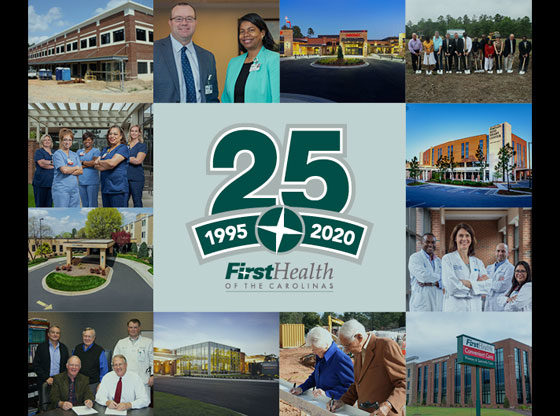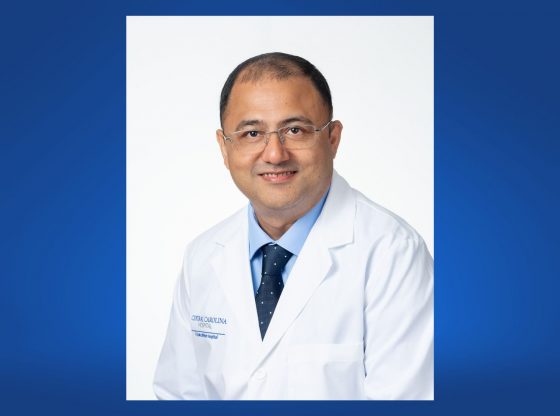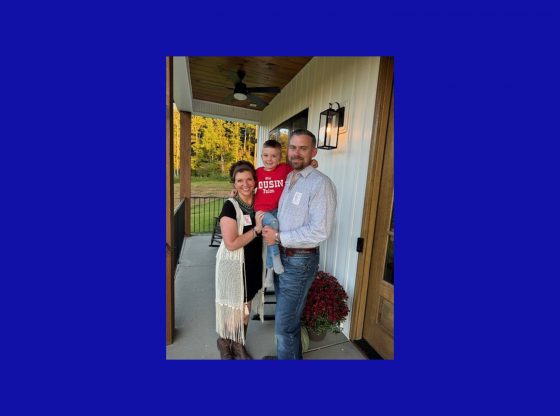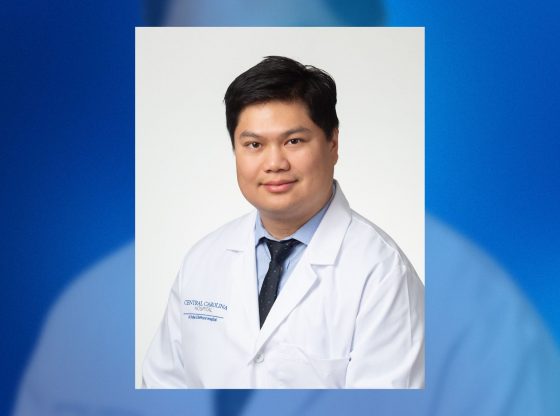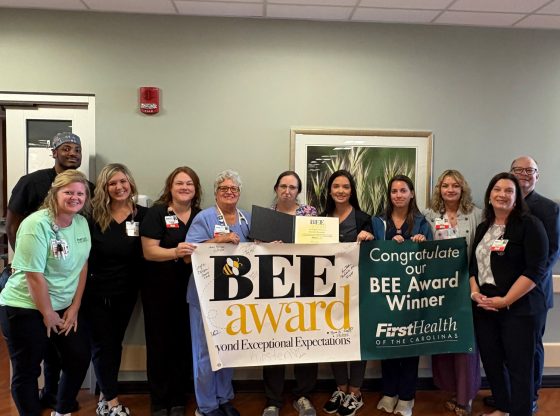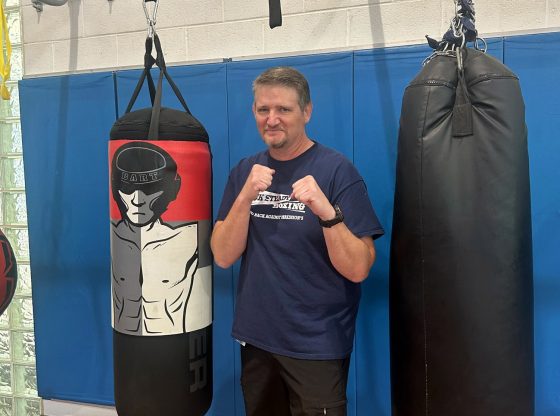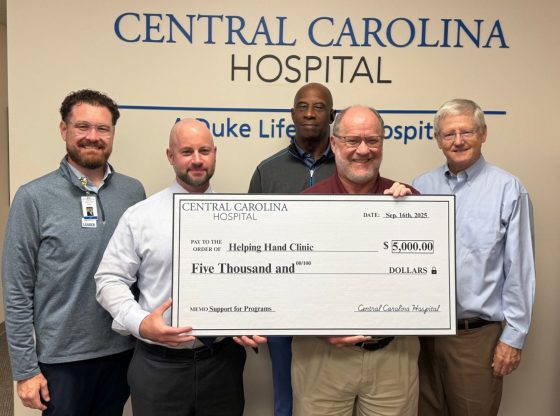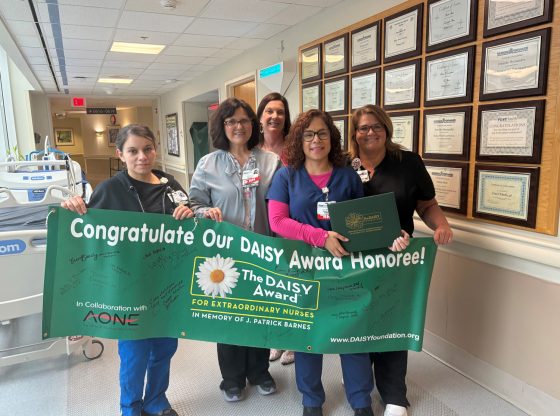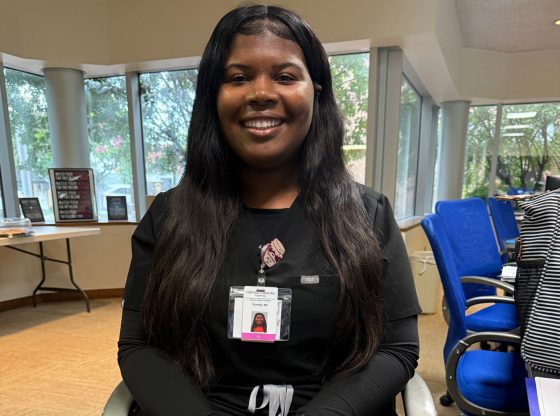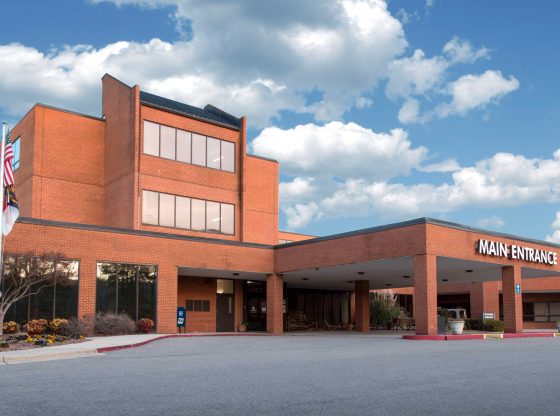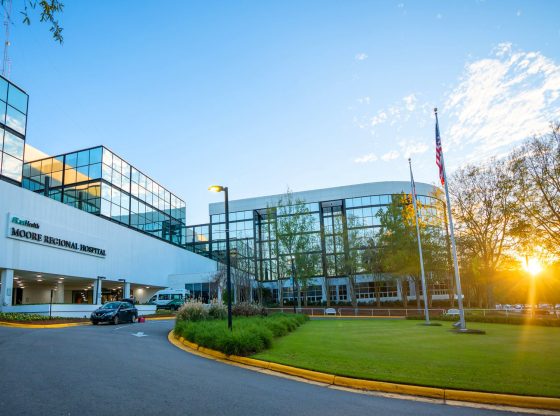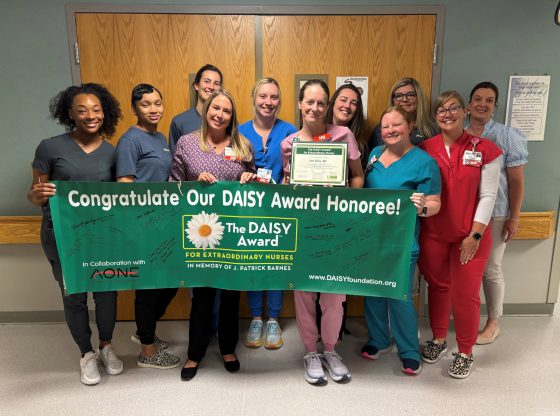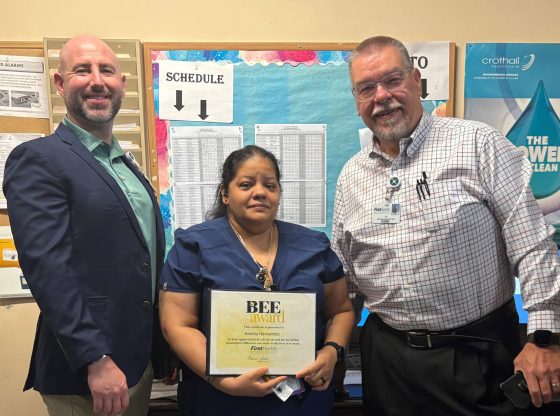As health care heroes at FirstHealth of the Carolinas continue to deliver care amid the COVID-19 pandemic, they are taking time to celebrate a momentous event in the organization’s history: its 25th anniversary. The organization invites the public to learn about its history and join the commemoration at its new 25th-anniversary website www.firsthealth.org\25years.
In late 1995, two long-established hospitals – Moore Regional in Pinehurst and Montgomery Memorial in Troy – joined forces to become FirstHealth of the Carolinas. “A collective goal was to make health care accessible, both in breadth of services and geographically,” said retired FirstHealth Chief Executive Officer Charles Frock. “Merging the two hospitals just made sense.” The result 25 years later is health care that is not only accessible but world-class.
“The work of community members both inside and outside our health care system has well-positioned FirstHealth of the Carolinas to excel in our core purpose to care for people,” said current FirstHealth Chief Executive Officer Mickey Foster, who started his health care career at Moore Regional Hospital in 1995. Today, FirstHealth is a family of 5,000 employees delivering primary and specialty care to families in 15 counties in North Carolina and South Carolina.
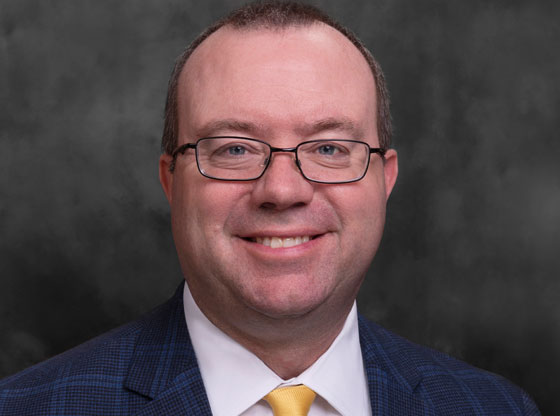
FirstHealth Chief Executive Officer Mickey Foster.
Caring for People throughout the Region
In the 25 years since FirstHealth became a regional health care system by merging the Moore and Montgomery operations, the concept of “region” has expanded to brick-and-mortar facilities in Richmond, Hoke, Lee and Randolph counties, as well. This expansion allows FirstHealth to serve patients in adjacent areas, including Scotland, Chatham, Cumberland, Robeson, Harnett, Anson and Stanly counties in North Carolina and Marlboro and Chesterfield counties in South Carolina.
Montgomery County
Montgomery Memorial Hospital opened in 1950 but by the 1980s, staying financially viable was difficult, a common symptom among independent rural hospitals. When the hospital merged with Moore Regional to become FirstHealth Montgomery Memorial Hospital, it could continue providing care to patients close to home. “It was not just a merger on paper,” said Beth Walker, R.N., retired president and long-time employee of Montgomery Memorial Hospital. “Moore Regional truly adopted Montgomery County and provided not only acute care hospital needs but wellness to the community.”
In 1999, the Troy hospital was designated a “Critical Access Hospital” by the Centers for Medicare and Medicaid Services. This federal designation allows rural hospitals to receive benefits that help them stay financially viable to keep essential services in rural communities.
Richmond County
On November 19, 1952, doors opened on the three-story, 50-bed Richmond Memorial Hospital in Rockingham. Although strong and sturdy, it encountered a fate similar to that of Montgomery Memorial and needed assistance to continue operations. FirstHealth of the Carolinas assumed management of Richmond Memorial Hospital in 1999 and acquired it in 2001. The hospital is now called FirstHealth Moore Regional Hospital – Richmond and is part of a wide array of FirstHealth facilities in the county.
“Joining forces with FirstHealth allowed Richmond County residents and nearby neighbors to receive high quality, specialty care without leaving the area,” said John Jackson, president of FirstHealth’s Southern Region and administrator of Moore Regional Hospital-Richmond. “Like other rural hospitals, we could not have done that alone.”
In 2016, FirstHealth acquired Sandhills Regional Medical Center in Hamlet and renamed it Moore Regional Hospital – Hamlet. However, a shift in patients’ visits to other FirstHealth facilities forced closure the next year. FirstHealth still offers a wide array of services in clinics throughout Hamlet.
Hoke County
In 2013, FirstHealth built and opened FirstHealth Moore Regional Hospital – Hoke in Raeford. Until that time, Hoke was the largest county in North Carolina without a hospital. Now it boasts an eight-bed hospital and 24/7 emergency department, along with several clinics offering primary and specialty care.
Lee County
A partnership between FirstHealth of the Carolinas and Pinehurst Medical Clinic provided cardiac services to residents in Lee County. Soon after, a FirstHealth Convenient Care Clinic opened in Tramway. Complementing that in 2018 was the opening of a multi-story medical office building and a state-of-the-art fitness center in Sanford. The facility houses the county’s second FirstHealth Convenient Care clinic, outpatient imaging, an outpatient lab, specialty services and a fitness center.
Elsewhere in the Sandhills
Care in the Sandhills extends beyond hospital and clinic walls to fitness centers, dental care for underserved children, hospice and palliative care, home care, community outreach programs, behavioral services, primary and convenient care practices, EMS, and a host of other services.
Caring for People in Numerous Specialties
Early leaders of the Pinehurst hospital sought to offer specialty-oriented community health care, typically not the norm for smaller organizations back then. As opposed to hiring generalists, leaders hired surgical and medical specialists in their fields. This focus intensified with the creation of FirstHealth of the Carolinas in 1995. For residents in FirstHealth’s service area, that means they have access to specialized care generally reserved for academic institutions in larger cities.
“Right now, we can take care of 95% of the situations that come through our doors,” said Foster. “That means neighbors can get the care they need close to home.”
The last 25 years have seen a proliferation of specialty expansion, particularly in cardiovascular, bariatric, orthopaedics, neurosurgery and cancer.
Cardiovascular Innovations at Reid Heart Center
In the 1980s, Drs. James A. Tart, F.M. Simmons Patterson, Jr., Wilson Staub, and others envisioned a comprehensive cardiac program at Moore Regional Hospital. They recruited interventional cardiologist David Cowherd, M.D., who performed the area’s first diagnostic cardiac catheterization in 1987 and the first balloon angioplasty in 1991. Staub also recruited John F. Krahnert, Jr., M.D. who, with his handpicked surgery team, performed Moore Regional’s first open-heart procedure, a triple bypass, in 1990.
A large need for cardiovascular services and an even larger vision by physicians and philanthropists Walter and Betty Reid led to the Reid Heart Center opening in 2011. Under one roof, patients can receive comprehensive, state-of-the-art cardiovascular care. Specialty clinics within Reid Heart Center include the FirstHealth Valve Clinic offering industry-leading innovations in valve care, such as the transcatheter aortic valve replacement (TAVR) and MitraClip procedures. The FirstHealth Cardiovascular & Thoracic Center offers surgical interventions not commonly offered at community hospitals, including Video Assisted Thoracic Surgery (VATS), Abdominal Aortic Aneurysm (AAA) repair and the Left-Ventricular Assist Device (LVAD). The Chest Center of the Carolinas brings together the expertise of multiple specialties in the treatment of lung cancer, esophageal and mediastinal tumors, and benign diseases of the chest.
Losing Weight and Gaining Life with the FirstHealth Bariatric Center
Over the last 25 years, bariatric surgery has proven effective in helping people with the chronic medical condition of morbid obesity lose weight and improve overall health. The area’s first bariatric procedure was performed at Moore Regional Hospital in 1999. Twelve procedures followed that year and 40 the year after. Now, more than 2,000 patients are on the FirstHealth Bariatric Center’s roster and will be throughout their lives. They received not only surgical therapies, but continuous supplemental services and access to programs to promote lifelong weight loss. “Once you’re a patient of ours, you’re a patient for life. We want you to succeed for the long term,” said surgeon Raymond Washington, M.D.
Orthopaedics Keeps Patients Moving
Years ago, doctors conducted meetings about patients but rarely included other professionals providing care, such as pharmacists, nutritionists and physical therapists. That did not make sense to John Ellis, M.D. often referred to as the founding father of the joint replacement program at Moore Regional Hospital.
Around the same time that FirstHealth formed, Dr. Ellis heard of the idea of a “service line” and thought it would work well for orthopaedics. He and other leaders were early adopters of the service line concept, in which a representative from each department contributing to a patient’s care comes together to create a “care path” for the patient. That concept, along with the addition of numerous talented orthopaedic surgeons and providers offering the latest innovations in musculoskeletal care, has garnered numerous awards in orthopaedics for FirstHealth.
Partnership with UNC-Chapel Hill Offers Round-the-Clock Neurosurgery & Spine Care
Close affiliations with nearby academic health care systems extend specialty care to the Sandhills. In 2008, FirstHealth and the University of North Carolina at Chapel Hill (UNC) forged a partnership to bring neurosurgery services to the Sandhills. Neurosurgeons are on staff and considered faculty at UNC but perform services at Moore Regional.
The UNC neurosurgeons can treat many patients with spine and intracranial injuries at Moore Regional, but those with more severe injuries can be transferred quickly by either air or ground to the Level 1 Trauma Center at UNC. Before this partnership, 24/7/365 access to skilled neurosurgeons was not available in the Sandhills.
Conquering Cancer
In the last 25 years, FirstHealth has grown into a regional destination for cancer care. The system attracts top-rated surgeons, oncologists and other providers offering the most advanced treatment options and access to clinical trials. Oncology nurse navigators coordinate services and provide a vast array of support so patients can focus on healing.
While FirstHealth’s Pinehurst campus is a destination for care, patients and families must travel to multiple campus locations for services. That will change in 2023 with the opening of the four-story, 120,000-square-foot FirstHealth Comprehensive Cancer Center on Page Road in Pinehurst. Similar to the Reid Heart Center, under one roof, patients will receive FirstHealth’s full continuum of cancer care. “At the new center, even more neighbors will be able to receive their cancer treatments close to home instead of having to go elsewhere,” said Foster.
A History of Teamwork Makes It Possible to Care for People
Throughout the history of FirstHealth’s entities – even before they became a regional health care system – teamwork inside and outside facility walls has been at the center.
For example, FirstHealth’s Community Health Services regularly joins forces with community organizations to provide school health programs, healthy living classes, tobacco cessation education, childhood injury prevention and medication assistance. It also leads a multi-sector coalition to battle opioid misuse.
Likewise, a strong relationship among area community colleges and FirstHealth benefits health care and local prosperity. Schools partner with FirstHealth to train highly skilled health care providers, and FirstHealth employs them with well-paying jobs.
A particularly striking example of teamwork is the community’s financial support through the Foundation of FirstHealth. In the 25 years since Moore Regional Hospital and Montgomery Memorial Hospital joined forces, the Foundation has distributed more than $70 million while averaging a $60+ million invested portfolio. Through these funds, supporters built the Reid Heart Center, the FirstHealth Hospice House and the Clara McLean House. They also provide cancer support services, preventive services such as mammograms, nursing scholarships, provider enrichment programs and a host of other services that complement FirstHealth’s core purpose to care for people.
Caring for People in the Next 25 Years and Beyond
Foster plans to continue FirstHealth’s current momentum focusing on three goals: open the new FirstHealth Comprehensive Cancer Center, make FirstHealth the best place to work in health care and create a culture resulting in zero harm to patients.
“Research has shown that high employee engagement is a significant factor in a great patient experience,” said Foster. “Similarly, when employees are happy, they produce quality work.” That contributes to zero harm, a term used in health care that means zero patients are harmed due to their interactions with FirstHealth.
Foster said he is eager to share FirstHealth’s story and community accomplishments. “Visit our 25th-anniversary website www.firsthealth.org\25years to learn more about our history and future.”
Courtesy photo/Contributed.


